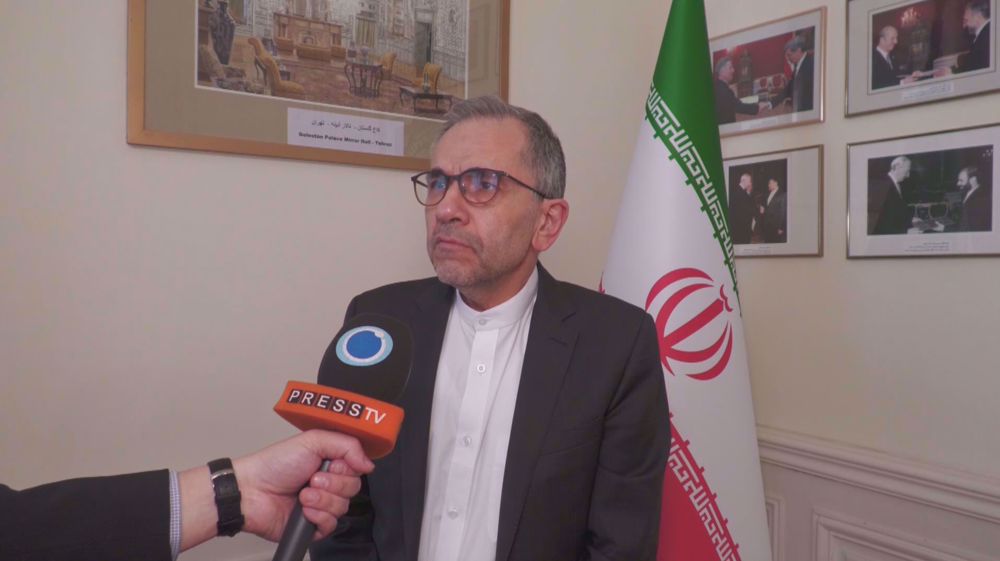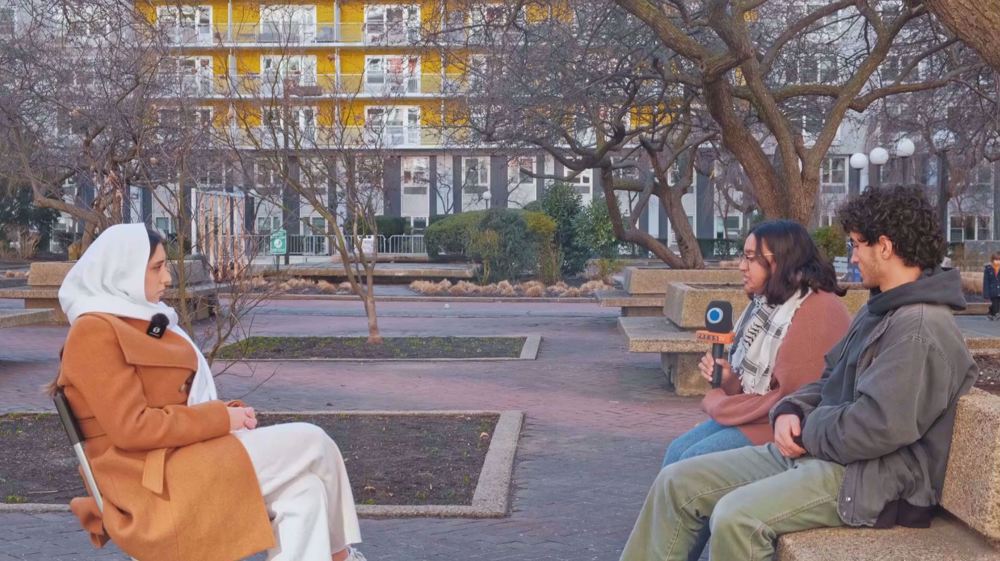US Muslims not associated with Daesh Takfiris: Activist
Press TV has conducted an interview with Rabiah Ahmed, of the Muslim Public Affairs Council in Washington, to discuss a recent report saying that American Muslim leaders are planning social campaigns against a rise in the harassment of Muslims.
The following is a rough transcription of the interview.
Press TV: Your organization is also part of this initiative. Why is it coming right now?
Ahmed: Well, I think it is important to note that American Muslim organization has been doing these efforts for years now. Voter registration drives, inter-faith efforts, programming to try to deal with any type of radicalization that you know is occurring within our community. But what is important is that we are coming together as a unified voice to work together, to rely on our respected strength as each organization so that our efforts and our voices can be amplified. And also we have a commitment to engage outside of our community because this is an issue that cannot be addressed by ourselves.
Press TV: Are not you at all concerned that this initiative specifically within the context of the current atmosphere will be misconstrued as that Muslims specifically in the West are collectively guilty of the actions of groups like Daesh in the Middle East for example?
Ahmed: Yes, you know absolutely. I mean there is that perception that American Muslims should regularly condemn and there was a lot of push back against that narrative initially I think. The American Muslim community was very hesitant to take on that responsibility because we do not associate ourselves with ISIS or the groups like ISIS and we did not want to associate with them. But you know in our faith and tradition we have to say…for justice …maybe. And I think that the community is now realizing that while we don’t have any direct connection to ISIS or share their agenda, the perception of American Muslims is that they need to do more and they need to root out that extremism within their own communities. So the American Muslim communities that are in this coalition are acknowledging this and they are accepting its leadership and taking on the challenge of adjusting these issues. We really cannot afford not to do this. The climate has gotten so tense right now that if we are not seen as leaders in the Islam, then ….hostility and anti-Muslim sentiment will only continue to rise.
Press TV: You also spoke of the importance of standing up against oppression in all its forms. How much if this initiative is also tied towards trying to at least influence the foreign policy of the US government, which has played a direct or indirect role in creating the situation as it stands for Muslims both at home and abroad?
Ahmed: One of the factors that comes into play when youth are attracted to the ideology of ISIS is that they play on legitimate foreign policy grievances that many Muslims have and what we are promoting instead is for our community centers and our mosques to create safe spaces for the youth to come and discuss these foreign policy issues and their grievances and have productive conversations around it and then to actually show them productive ways and actually bringing upon social change. So yes they are legitimate foreign policy issues, but ISIS is not the solution; it is not the way it actually addresses those grievances. There are productive legal Islamic avenues that one go about to address any type of civic engagements or foreign policy issues that you know that we have.

Press TV interviews Iran deputy FM on nuclear program, sanctions relief

The price we paid for freedom

ICC's arrest warrant for Netanyahu to worry Western politicians: Former British diplomat
Scores of Alawites killed in new sectarian violence by HTS forces in Syria
US approves potential sale of Stinger missiles to Morocco
Iran summons Argentine envoy over accusations against top officials
VIDEO | Rally against another Columbia student arrest held in New York
VIDEO | Press TV's news headlines
VIDEO | Tehran-Washington negotiations
VIDEO | Iran leads global push to define terrorism after 25 years of debate
US prepares to arm Israel with 1000s more bombs ahead of ‘vigorous expansion’ of Gaza war










 This makes it easy to access the Press TV website
This makes it easy to access the Press TV website